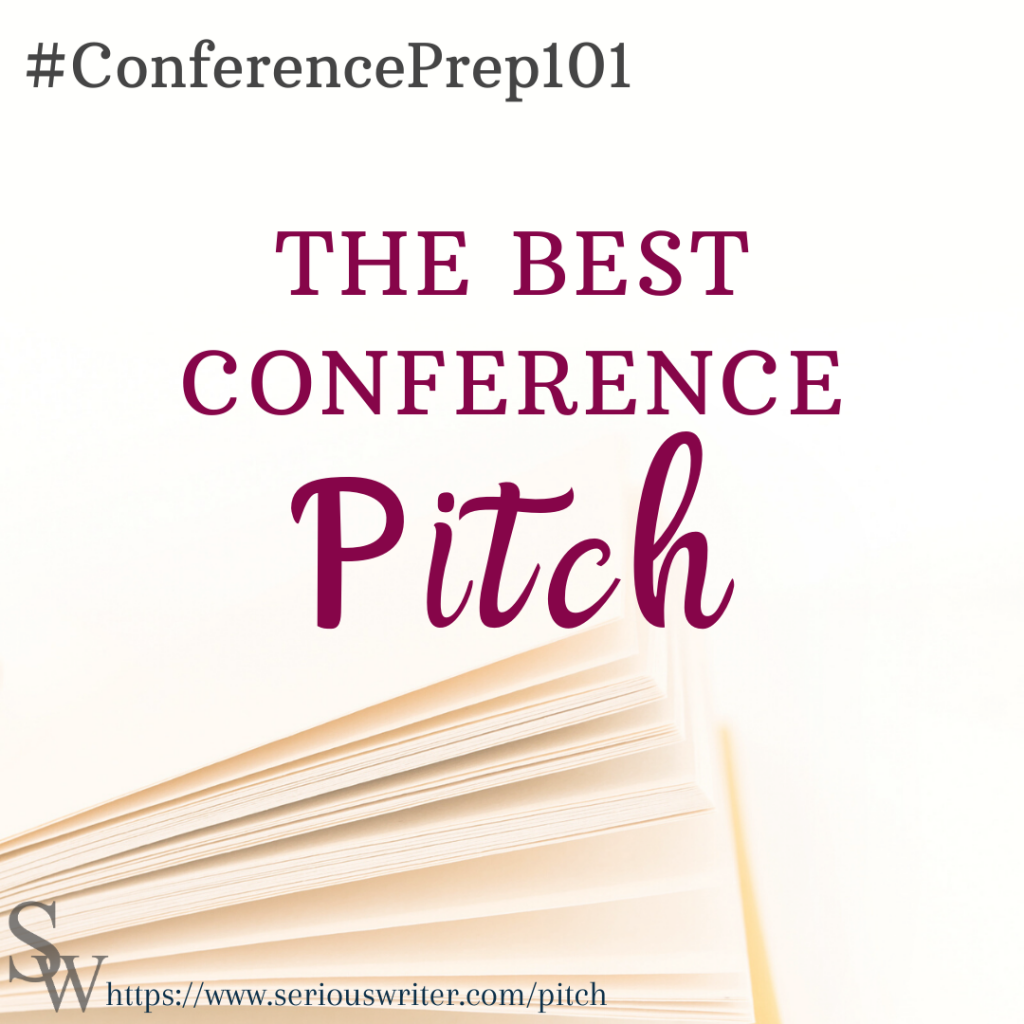
No doubt, nothing stresses out writers more than having to pitch to agents and editors in person.
After all, in ten minutes, we have to boil down into mere sentences projects we’ve worked on for years. And if we lose their interest, we might miss an opportunity to jump over the slush pile.
So what do we do when we want to pitch our books at a conference?
First, take a deep breath. In this post, we’ll walk you through some tips on how to craft the perfect conference pitch.
Step One: Remember, They’re People, Too
Many of them have sat at the other end of the table. They’ve pitched to editors, agents, or industry professionals. We’ve all started somewhere, so approach this “pitch” like a conversation.
They simply want to hear about your project, what gets you excited about it, and how you think you can market it in the current industry.
Practice with a friend beforehand if you have to, or another conferee outside the pitch room.
Step Two: Nail the Elevator Pitch
Don’t spend the whole ten minutes telling them why Liam, a side character, has an arc that will disrupt the romantic tension between Himari and Kevin. We don’t have time for all of that.
Boil your pitch down to 25 words if you can, and leave them wanting more.
The less you say, the more questions they’ll ask:
- Tell me more about the main character?
- What are some books in your genre that are similar to this?
- How does it end?
Etc.
Step Three: Don’t Do/Say the Following
- “This is my first time pitching.” Act like you know what you’re doing. The more relaxed you are, the more you’ll set the agent or editor at ease.
- Flirt. Please, just don’t. We can’t tell you how many men and women flirt with agents and editors at these conferences. Flatter, in this case, will get you nowhere.
- Get upset if they don’t offer a contract. Most editors and agents don’t. They want to meet you at these one-on-one appointments to taste-test the idea and get to know you. You will likely not walk away with a book deal.
- Belittle the agent or the publishing house. It sounds straight-forward, but we cannot tell you how many times people made age-ist, sexist, or any other “ist” comments at these events. Respect the agent and the editor and the hard work they’ve done to get to their position in the industry.
Step Four: You Can Bring Materials with You…
But many won’t want to take them.
We simply don’t have enough time to read three chapters in ten minutes. You can bring business cards, one-sheets, and chapter samples, but mostly likely, they’ll ask you to email them the information instead.
Step Five: Prepare Yourself for Any and All Questions
Just like when you prep for a job interview, you’ll want to be prepared for any questions they may ask you at a conference pitch session. Some of these may include:
- Tell me about your platform?
- Do you have any other projects?
- Tell me why you wrote this project in particular?
Do a Google search on FAQs for conference pitches, and come in prepared.
Step Six: Watch for the Lean
If an editor or agent leans in, they’re interested.
If they lean back, you may want to pitch other projects. Don’t worry if you don’t have all of your projects finished. Most don’t have a strict deadline for when you can send the materials.
Step Seven: Follow-Up
Most agents and editors, if they feel like the project will fit them, will request you send it to their inbox. This doesn’t by any means guarantee a project. But, surprisingly, only a small selection of authors who get this invitation will actually submit.
Take the chance and actually submit the manuscript. At worst, they can send a no. And more likely, they’ll send more detailed feedback because they met you in person.
Pitching Resources
Writers Chat: One Page Critiques
How to Prepare for Pitch Sessions at a Writing Conference: Almost An Author
Query with Confidence!: Almost an Author
Pitch Perfect: Serious Writer Academy





0 Comments